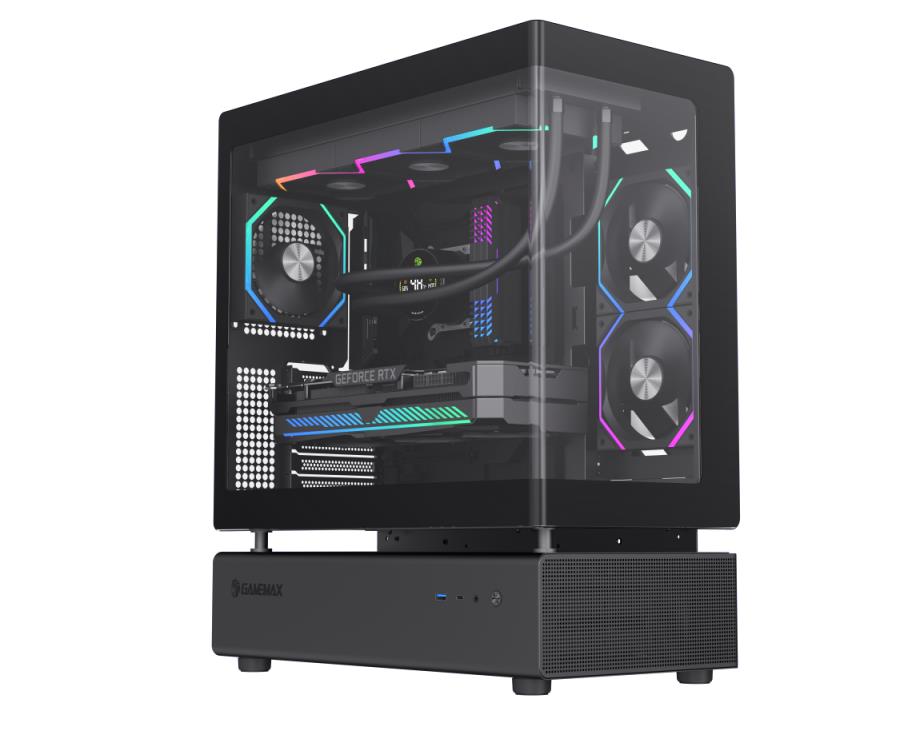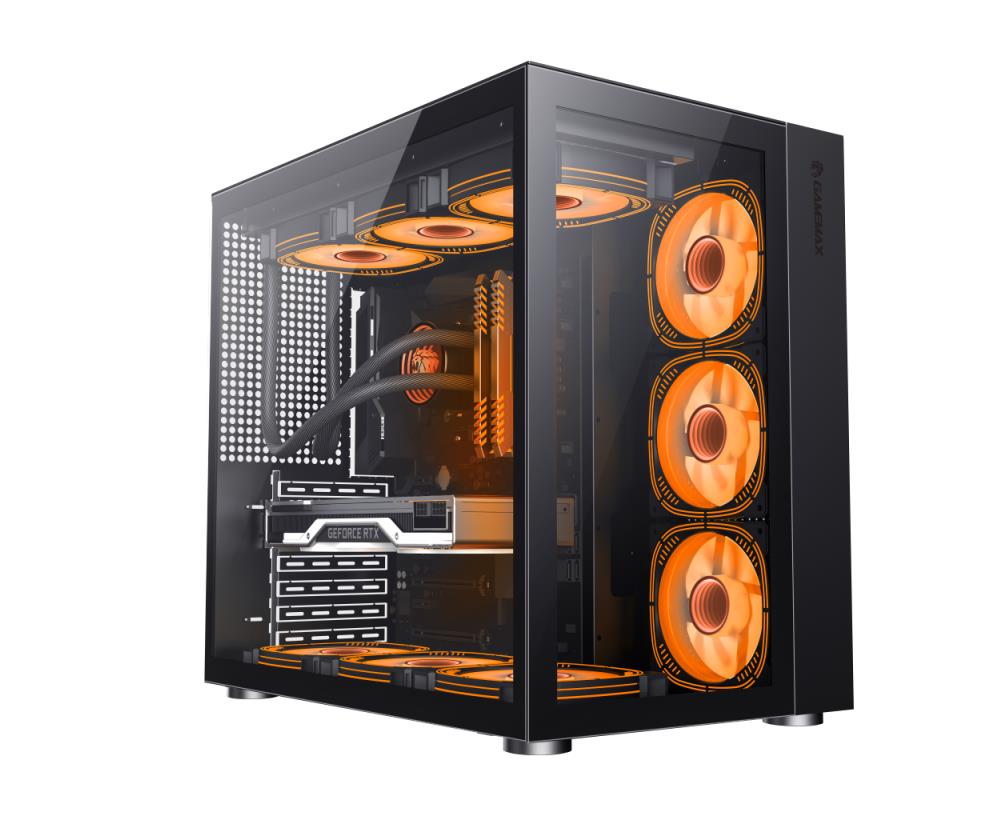When it comes to building a custom PC, one of the most critical decisions is selecting the right case. A PC case serves not only as the protective housing for your components but also plays a significant role in the overall aesthetics of your build. In recent years, tempered glass has become one of the most popular materials for PC cases, owing to its sleek, modern look and durability. However, like any material, tempered glass has its advantages and drawbacks.
In this article, we'll dive deep into the pros and cons of tempered glass PC cases, helping you decide whether they're the right choice for your next build. We'll cover the beauty, sturdiness, cooling performance, maintenance, and weight aspects of these cases to provide a balanced view.

One of the main selling points of tempered glass PC cases is their aesthetic appeal. Here’s why they are so popular among PC enthusiasts:
Tempered glass provides a clear view of your internal components, allowing you to showcase your hardware and lighting effects. With RGB lighting becoming more common in gaming and enthusiast setups, a tempered glass side panel can turn your PC into a glowing centerpiece. Many tempered glass cases feature multiple side panels, so you can view your build from various angles.
The premium glass finish offers a professional and polished look, giving your setup a modern and high-end appearance. Whether you're into gaming, content creation, or simply appreciate fine craftsmanship, a tempered glass case adds a touch of elegance to any space.
For users who opt for custom water cooling loops, a tempered glass case is an excellent choice. The clear panels allow you to display your intricate cooling solutions, whether it's a custom liquid loop, RGB fans, or custom cables. This level of visibility adds a personal touch to your build.
When it comes to physical strength, tempered glass is significantly stronger than standard glass. It’s designed to withstand pressure and impacts better, making it a durable choice for cases.
Tempered glass is heat-treated to increase its strength. This makes it more shatter-resistant than regular glass. In the unlikely event that tempered glass does break, it shatters into small, blunt pieces, which are safer than jagged shards of regular glass.
Tempered glass is less prone to scratching compared to regular glass, and it holds up well over time. However, it’s still susceptible to scratches if you use abrasive materials to clean it. While it’s not completely immune, tempered glass fares better against everyday wear and tear compared to other materials.
Unlike plastic or acrylic, tempered glass does not yellow or degrade over time. This ensures your PC case maintains its clean, clear look for years. The durability of tempered glass ensures that your case will retain its aesthetic appeal for a long time.

While tempered glass offers a lot of benefits, there are several drawbacks that potential buyers should consider before making their purchase. Here are the primary concerns:
Tempered glass, while strong, has limitations when it comes to heat dissipation. Many tempered glass cases have limited airflow compared to their mesh or ventilated counterparts. The lack of ventilation panels can cause increased internal temperatures, particularly in high-performance systems with powerful CPUs or GPUs that generate a lot of heat.
Limited Airflow: While many cases have tempered glass front panels with some ventilation, they still hinder airflow compared to fully mesh or perforated cases. Without proper airflow, cooling becomes inefficient, potentially affecting system performance.
Cooling Solutions: To mitigate this issue, you might need to invest in high-performance fans or custom water-cooling systems to compensate for the reduced airflow.
One of the biggest drawbacks of tempered glass cases is their maintenance. While glass looks sleek and modern, it can be a fingerprint magnet. Every time you touch the case, you may leave a smudge or fingerprint on the surface, making it difficult to maintain that pristine, clean look.
Dust Visibility: Unlike cases with solid metal or plastic panels, the clear surface of tempered glass shows every speck of dust. This can be particularly frustrating for users with dust-prone environments or those who don't want to frequently clean their cases.
Cleaning: Cleaning a tempered glass panel can be more tedious than other materials. While you can clean it using a microfiber cloth, using the wrong cleaning solution or rough cloths can cause scratches or streaks. This is something to consider if you want a hassle-free experience.
Tempered glass cases are often heavier than those made with plastic or acrylic. The weight of the glass can make the case harder to move around, which could be a concern if you frequently transport your PC for LAN parties or events.
Transporting: Due to their heavier weight, tempered glass cases require extra care during transportation to avoid accidents. The fragility of glass, while less prone to shattering, still makes it a more delicate material compared to plastic.
Because of the premium nature of tempered glass, these cases tend to be more expensive than their acrylic or metal counterparts. If you're building a budget PC, opting for a tempered glass case may stretch your budget. However, if aesthetics and visibility are important to you, this tradeoff might be worthwhile.
Whether or not a tempered glass PC case is the right choice for you depends on your needs and preferences. Here’s a breakdown of what to consider:
Aesthetic Priority: If you value the aesthetic of your PC build and want to showcase your components, a tempered glass case can significantly enhance the appearance of your system.
Cooling Requirements: If you're building a high-performance gaming or workstation PC, you'll need to invest in proper cooling solutions to offset the limited airflow of tempered glass cases. Consider adding more fans, liquid cooling, or ensuring that your case is designed for optimal airflow.
Maintenance Willingness: If you don’t mind cleaning your case more frequently to maintain its aesthetic appearance, tempered glass may be a great fit. However, if you prefer low-maintenance setups, you might want to look at cases with mesh or plastic panels.
Budget Considerations: If you're on a budget and need to prioritize performance over aesthetics, a tempered glass case might not be the best choice. In this case, you can opt for a more affordable, performance-focused case with better airflow.
Tempered glass PC cases are undeniably beautiful and durable, providing a stunning, modern look for your build. They allow you to showcase your components, cooling solutions, and RGB lighting, making them an excellent choice for users who prioritize aesthetics.
However, they do come with their downsides—namely in the areas of cooling efficiency, maintenance, and weight. If you’re willing to invest in high-performance cooling solutions and don't mind cleaning your case frequently, a tempered glass case can be a great addition to your build. For users who prioritize function over form, however, there are other case materials that offer better cooling performance and easier maintenance.
Ultimately, the decision comes down to your specific needs, aesthetic preferences, and willingness to maintain your system. With proper care and the right cooling solutions, a tempered glass case can truly elevate your PC build.